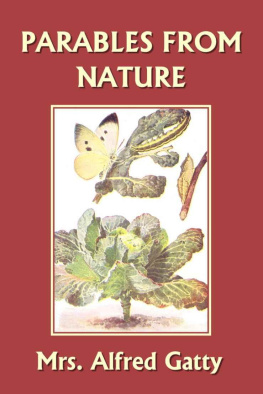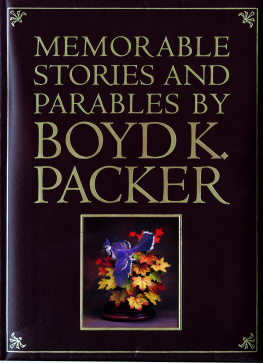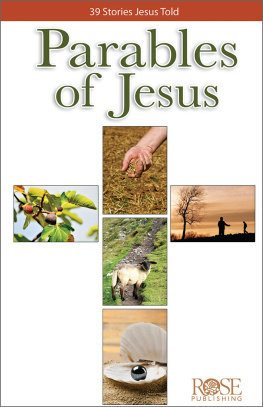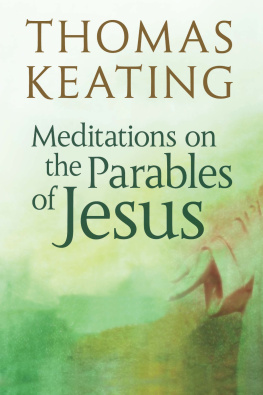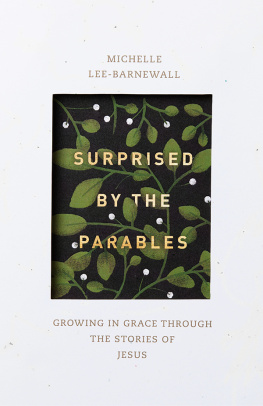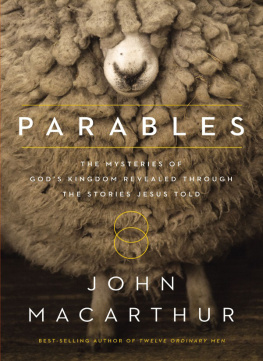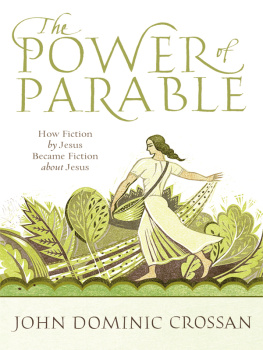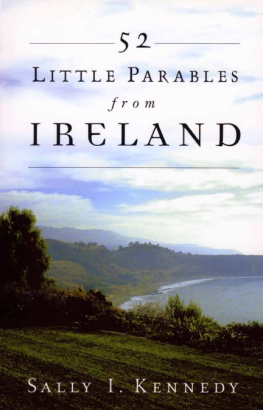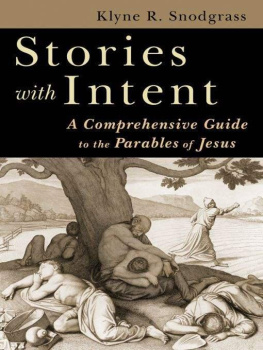Mrs. Alfred Gatty - Parables from Nature
Here you can read online Mrs. Alfred Gatty - Parables from Nature full text of the book (entire story) in english for free. Download pdf and epub, get meaning, cover and reviews about this ebook. year: 2006, publisher: Yesterdays Classics, genre: Art. Description of the work, (preface) as well as reviews are available. Best literature library LitArk.com created for fans of good reading and offers a wide selection of genres:
Romance novel
Science fiction
Adventure
Detective
Science
History
Home and family
Prose
Art
Politics
Computer
Non-fiction
Religion
Business
Children
Humor
Choose a favorite category and find really read worthwhile books. Enjoy immersion in the world of imagination, feel the emotions of the characters or learn something new for yourself, make an fascinating discovery.
- Book:Parables from Nature
- Author:
- Publisher:Yesterdays Classics
- Genre:
- Year:2006
- Rating:5 / 5
- Favourites:Add to favourites
- Your mark:
- 100
- 1
- 2
- 3
- 4
- 5
Parables from Nature: summary, description and annotation
We offer to read an annotation, description, summary or preface (depends on what the author of the book "Parables from Nature" wrote himself). If you haven't found the necessary information about the book — write in the comments, we will try to find it.
Parables from Nature — read online for free the complete book (whole text) full work
Below is the text of the book, divided by pages. System saving the place of the last page read, allows you to conveniently read the book "Parables from Nature" online for free, without having to search again every time where you left off. Put a bookmark, and you can go to the page where you finished reading at any time.
Font size:
Interval:
Bookmark:
All rights reserved. No part of this book may be reproduced or retransmitted in any form or by any means without the written permission of the publisher.
This edition, first published in 2010 by Yesterday's Classics, an imprint of Yesterday's Classics, LLC, is an unabridged republication of the work originally published 1855 to 1870. This title is available in a print edition (ISBN 978-1-59915-005-5).
Yesterday's Classics republishes classic books for children from the golden age of children's literature, the era from 1880 to 1920. Many of our titles are offered in high-quality paperback editions, with text cast in modern easy-to-read type for today's readers. The illustrations from the original volumes are included except in those few cases where the quality of the original images is too low to make their reproduction feasible. Unless specified otherwise, color illustrations in the original volumes are rendered in black and white in our print editions.

"There are two books," says Sir Thomas Browne, in his Religio Medici , "from whence I collect my divinity; besides that written one of God, another of his servant, Naturethat universal and public manuscript that lies expanded unto the eyes of all: those that never saw Him in the one have discovered Him in the other." And afterwards, as if giving a particular direction to the above general statement, he adds: "Those strange and mystical transmigrations that I have observed in silkworms turned my philosophy into divinity. There is in these works of Nature, which seem to puzzle reason, something divine, and hath more in it than the eye of a common spectator doth discover."
Surely these two passages, from the works of the celebrated physician and philosopher, may justify an effort to gather moral lessons from some of the wonderful facts in God's creation: the more especially as St. Paul himself led the way to such a mode of instruction, in arguing the possibility of the resurrection of the body from the resurrection of vegetable life out of a decayed seed: "Thou fool, that which thou sowest is not quickened except it die!" Thou fool fool! not to be able, in thy disputatious wisdom, to read that book of "God's servant, Nature," out of which there are indeed far more actual lessons of analogy to be learned than we are apt to suppose, or can at once detect. Assuredly, the changes of the silkworm, and the renewal of life from vegetable seed, are not more remarkable than the soaring butterfly rising from the earth gruba change which, were the caterpillar a reasonable being, capable of contemplating its own existence, it would reject as an impossible fiction.
It was not, however, Sir Thomas Browne's remarks which gave rise to these parables; for the first was written in an outburst of excessive admiration of Hans Andersen's Fairy Tales , coupled with a regret that, although he had, in several cases, shown his power of drawing admirable morals from his exquisite peeps into Nature, he had so often left his charming stories without an object or moral at all. Surely, was the thought, there either is, or may be devised, a moral in many more of the incidents of Nature than Hans Andersen has tried for; and on this view the "Lesson of Faith" was writtenan old story; for the ancients, with deep meaning, made the butterfly an emblem of immortalityyet, to familiarise the young with so beautiful an idea seemed no unworthy aim.
"The Sedge Warbler" is open to the naturalist's objection, that female birds do not sing. But it suited the moralist that they should do so in this particular case; and who would not err in such company as Spenser, Milton, Thomson, Beattie, and the immortal Isaak Walton?
"And in the violet-embroider'd vale,
Where the love-lorn nightingale
Nightly to thee her sad song mourneth well."
Song of Comus M ILTON
"And Philomele her song with teares doth steepe."
The Shepherd's Calendar, Nov. S PENSER
"But the nightingale, another of my airy creatures, breathes such sweet loud music out of her instrumental throat, that it might make mankind to think that miracles had not ceased."
W ALTON'S Angler.
"All abandoned to despair, she sings
Her sorrows through the night; and on the bough
Sole sitting, still at every dying fall
Takes up again her lamentable strain."
T HOMSON'S Seasons: Spring.
And shrill lark carols clear from her arial tour."
B EATTIE'S Minstrel.
An interesting account of the first discovery of the Sedge Warbler, of its habit of singing by night as well as by day, of its mocking notes, and of its distinctive differences from the Reed Warbler, may be found in White's History of Selborne.
Nothing but the present growing taste for the use of the microscope, and the study of zoophytes, among other minute wonders of sea, earth, and sky, could justify the selection of so little popular a subject for a parable as will be found in "Knowledge not the Limit of Belief."
"The moon that shone in Paradise," was the exclamation of a very melancholy mind, which failed to recognise in the thought the hope it was calculated to convey, and which it has now been attempted to teach.
May the "Lesson of Faith" and the "Lesson of Hope" each work its appointed end, and may they combine to enforce on the mind of youth the value of that "still more excellent gift of charity," which "hopeth all things, believeth all thing, endureth all things!"

Margaret Scott had a most unusual education, as is shown in the wide scope of her knowledge, and the depth of character and reflection in her writings. Her father was the Rev. A. J. Scott, D.D., who was a chaplain on board the Victory when Nelson was shot. He did not believe in school life, for girls at any rate, and educated his daughter himself at home. In Margaret's case the plan resulted in her acquiring a liking for many things that were not then usual for a girl to know, and led directly to the writing of this book of wisdom.
She also had considerable artistic ability, which showed itself in some beautiful illuminated handwritings. She was also skilled at etching, with which she illustrated some of her own writings. Though her literary ability began to show itself at an early age (at seventeen she was translating Dante) she was forty-one before she began to publish. This first book was Joachim the Mimic .
Other books of short tales with morals followed, and in 1831 appeared the first series of Parables from Nature . These stories were written after a long and careful study of natural history, both at first-hand and from books. Her collection of interesting natural objects was a continual inspiration. She had another inspiration too, and this arose from a wish that Hans Andersen had "pointed the moral" more often. She therefore determined to do what she could in this way herself. The outcome was the Parables from Nature , issued in five short series.
Margaret Scott married the Rev. Alfred Gatty, D.D., in 1839, who had his living at Ecclesfield, in Yorkshire. There Mrs. Gatty remained until her death. Her breadth of view and liberal-mindedness enabled her to help in the betterment of her husband's parish. When the use of chloroform to alleviate pain began, Mrs. Gutty became an enthusiastic disciple. She overcame the prejudices of the local doctor; she taught him how to use it; and then to encourage the ignorant and timid villagers, she took the first dose of the drug herself.
Font size:
Interval:
Bookmark:
Similar books «Parables from Nature»
Look at similar books to Parables from Nature. We have selected literature similar in name and meaning in the hope of providing readers with more options to find new, interesting, not yet read works.
Discussion, reviews of the book Parables from Nature and just readers' own opinions. Leave your comments, write what you think about the work, its meaning or the main characters. Specify what exactly you liked and what you didn't like, and why you think so.

